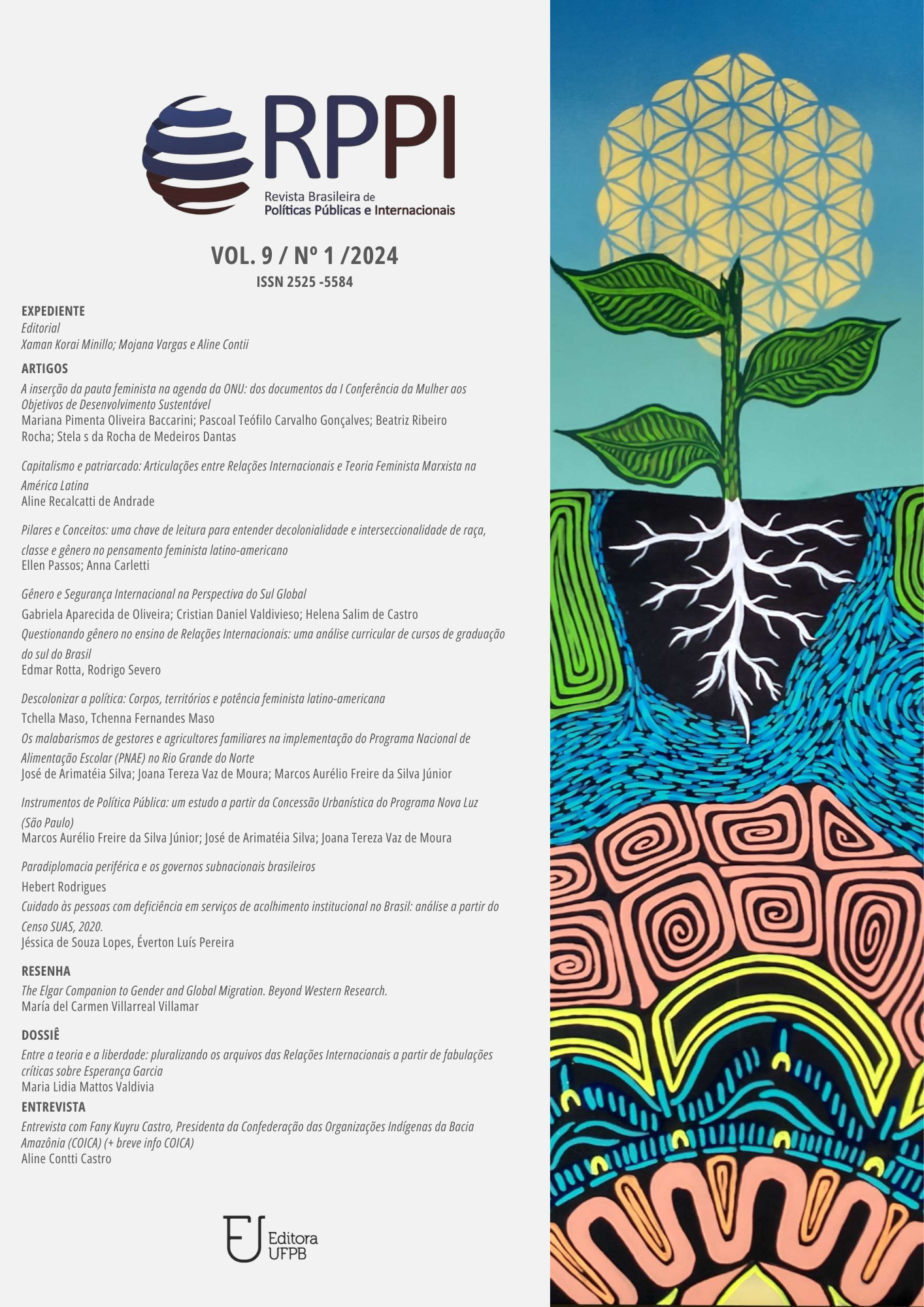Gênero e Feminismos no Ensino de Relações Internacionais no Brasil
DOI:
https://doi.org/10.22478/ufpb.2525-5584.2024v9n1.65875Keywords:
Gender and International Relations, Teaching of International Relations, CurriculumAbstract
The scarce Brazilian literature on the teaching of Gender in undergraduate courses in International Relations indicates both a distance from the area of the theme, as well as a gap in its teaching in the curricula. In this exploratory research, the general objective is to analyze how three International Relations courses from public universities in the South of Brazil have addressed the theme of gender in the mandatory course syllabi. To carry out this analysis, the method used is a bibliographic analysis on gender and a documentary analysis of the mandatory syllabi of the researched universities. In the first section, I approach the theoretical debate on curricular analysis. In the second section, I address the debates on Gender and the teaching of International Relations. In the third section, I analyze the mandatory syllabi of the undergraduate courses in International Relations of the following universities: Federal University of Santa Maria (UFSM) in Rio Grande do Sul (RS), Federal University of Santa Catarina (UFSC) in Santa Catarina (SC), and Federal University of Latin American Integration (UNILA) in Paraná (PR). A total of 103 course syllabi were analyzed, of which 3 (2.91%) addressed some of the aforementioned concepts in a marginal way. I observe that in the four or five years of duration of the three undergraduate courses, there is only the "gender week," that is, there is only one week in a discipline or entire course to discuss the theme. In the final considerations, I also observe that there is an opportunity to question, dispute and change International Relations curricula to adopt non-hegemonic perspectives.
Downloads
Downloads
Published
Issue
Section
License
Copyright (c) 2024 Alessandra Jungs de Almeida

This work is licensed under a Creative Commons Attribution 4.0 International License.
Autores que publicam nesta revista concordam com os seguintes termos:- Autores mantém os direitos autorais e concedem à revista o direito de primeira publicação, com o trabalho simultaneamente licenciado sob a Licença Creative Commons Attribution que permite o compartilhamento do trabalho com reconhecimento da autoria e publicação inicial nesta revista.
- Autores têm autorização para assumir contratos adicionais separadamente, para distribuição não-exclusiva da versão do trabalho publicada nesta revista (ex.: publicar em repositório institucional ou como capítulo de livro), com reconhecimento de autoria e publicação inicial nesta revista.
- Autores têm permissão e são estimulados a publicar e distribuir seu trabalho online (ex.: em repositórios institucionais ou na sua página pessoal) a qualquer ponto antes ou durante o processo editorial, já que isso pode gerar alterações produtivas, bem como aumentar o impacto e a citação do trabalho publicado (Veja O Efeito do Acesso Livre).




_.jpg)






.png)


.jpg)
_.png)
